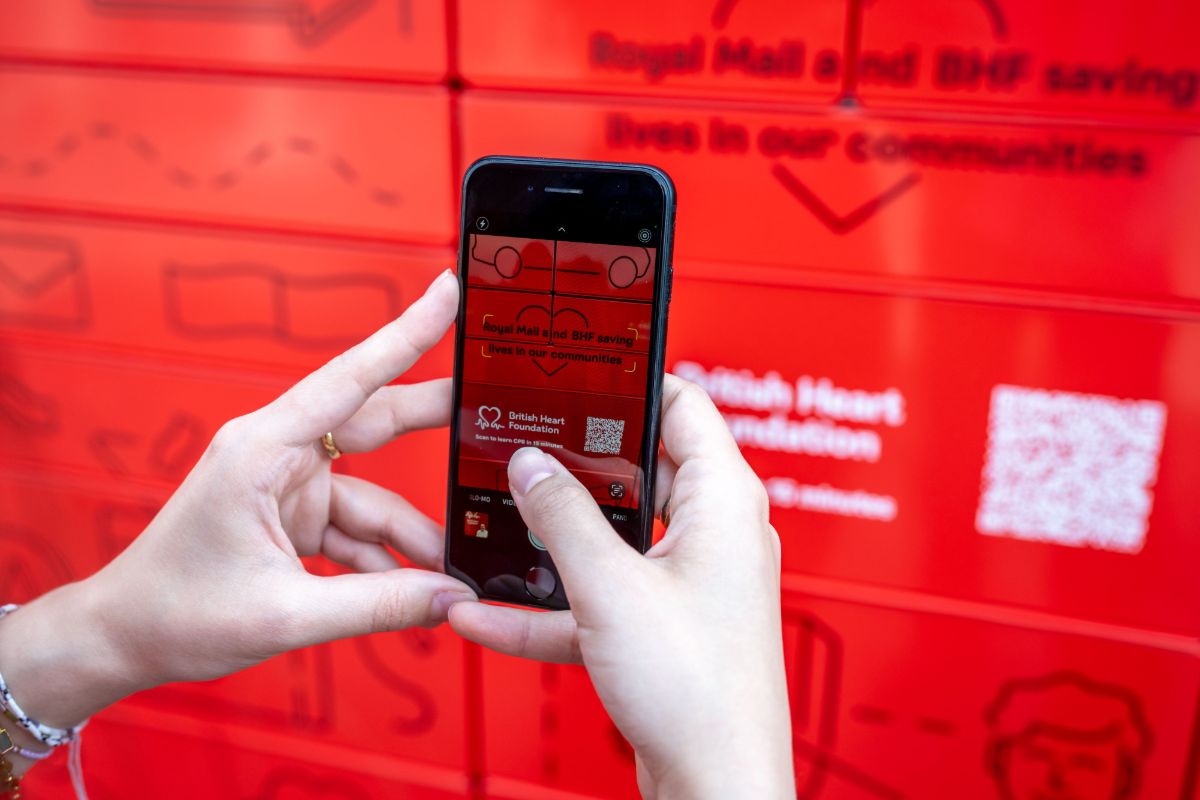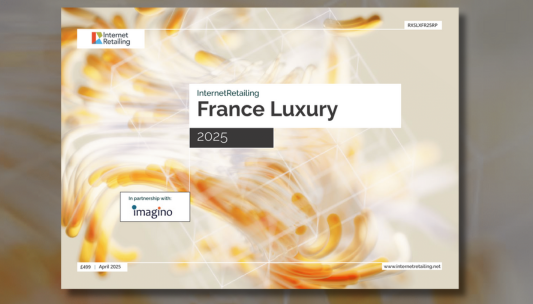Chloe Rigby looks at four strategies that leading retailers use as they grow their business overseas.
It’s probably easier to be an exporter today than it has ever been, thanks to ecommerce technology and a growing array of suppliers and platforms now geared up to help retailers send their wares to new markets. At the same time, online retailers globally are selling more: parcel shipping generated revenues worth $279bn in 2017, according to the latest Pitney Bowes Parcel Shipping Index. That’s 17% more than in the previous year. Online shopping is driving this, says Pitney Bowes president, commerce services Lila Snyder. “Global ecommerce giants continue to raise the bar, resetting consumer expectations when it comes to shipping,” she said. We take a look at the key strategies that leading IRUK Top500 retailers are successfully operating.
Selling Direct
Retailers looking to sell to new markets often start by enabling international shipping before developing dedicated localised websites, featuring the relevant languages and payment for their most important markets, supported by local brand awareness campaigns. IRUK Top100 retailers Wiggle and sister company Chain Reaction Cycles between them have more than 2.5m customers, in 76 shipping destinations. There are 14 versions of the Wiggle website, and nine of the CRC site; both are actively marketed in about 20 countries. Selling internationally presents both opportunities and challenges, Geoff Bull, head of digital marketing and ecommerce at the two companies told this year’s InternetRetailing Expo (IRX 2018). He said that the internet allowed price transparency across markets, while making it easier for shoppers to find the answers to questions they may have about a product. That makes it easier for shoppers to buy – and international is a huge opportunity for retailers: those selling non-perishable goods that are in categories with a low regulatory framework can find that the global market is “essentially boundary-less” for them. However, he said, because it’s so much easier for all retailers in such categories to sell abroad, levels of competition are much higher. “The simplicity creates a brand new problem,” he said, “complexity. You start multiplying out the size of the business and spread yourself too thinly too quickly.” So how does the Wiggle team decide which markets are its top priorities? The retailer starts by identifying the markets where consumers need access to the products it sells, or could benefit from the way it sells them. By testing the market first, it can then move on to build scale.
ONLINE MARKETPLACES
According to eBay, 93% of the 200,000 British businesses that sell on eBay.co.uk exported to five or more countries last year, many outside the EU. eBay says that small businesses in particular have the flexibility to respond to changing markets. Online marketplaces such as eBay and Amazon not only deliver international sales but, for a price, can take care of fulfilment and related customs and tariffs.
But it’s not just smaller retailers selling their wares via online marketplaces. Many IRUK Top500 retailers are building thriving businesses through third-party websites, from eBay and Amazon to Tmall and beyond. By doing so, they can test their goods in new markets and build awareness of their name internationally. Next’s figures for the year to January 2018 showed that £30m of its £295m international sales came via third-party websites – a figure that was 35% up on the previous year. It says selling via such websites enables it to reach and target new customer groups. In its full-year results, to January 2018, it said its next step would be to use its data management platform to improve its understanding of what products sold best via such sites, and how much it should spend on advertising on those websites. “Early signs are encouraging,” it said. “Trials indicate that we can deliver an improvement of at least 12% return on advertising spend (i.e. 12% more sales for the same investment in advertising.) However this application is not just about improving returns on marketing spend, it also allows us to target customer groups we could not identify in the past.”
In a recent trading statement, fast fashion retailer Quiz said that it had recorded “exceptional sales” when it sold both via Berlin-based European marketplace Zalando, and via Next’s own site for third-party brands.
AO World built a successful UK business, ao.com, selling household white goods and expanding to sell other electricals, before moving to take its recipe for success to European markets. Its European websites in Germany and the Netherlands turned over €131.2m in the year to March 2018 – 54% up on the previous year. That’s still lower than the £606.6m its UK website, a Top50 business in IRUK Top500 research, made over the same period, but it is growing faster. The retailer says that it has invested little in traditional marketing in these new markets, with awareness growing both through customer recommendations and through marketplaces including Amazon in Germany and Blokker and BOL in the Netherlands. This, it says, gives “our brand more visibility and the opportunity to reach new customers”
SUPPORTING THROUGH DELIVERY AND DISTRIBUTION
Locating stock closer to the end customer helps to speed up delivery times and enable international retailers to compete more effectively with local incumbents. UK fast fashion business and IRUK Top50 retailer, Asos, has 16.5 million active customers, it said in half-year figures to February 28. It also has more than twice as many customers outside the UK as in its home market. Getting delivery right, from distribution centres in Europe and the US as well as in the UK, has given it an edge. The centres allow it to offer next-day delivery and click and collect services in markets including Germany, Austria and Russia. Asos Premier, a paid-for loyalty scheme that includes free next-day delivery, is now available in overseas markets including Ireland, Belgium, Denmark and Sweden.
IRUK Top250 retailer Gear4Music has also seen sales grow quickly after launching European distribution centres in Sweden and Germany. International revenue of £35.8m was 69% up on the previous year – but there’s plenty more potential, said chairman Ken Ford in results for the year to February 28: “We only have an estimated 1% share of the European market and will continue to invest significant effort and resources in order to improve and increase our global reach,” he said.
boohoo.com has worked to improve its international returns: US customers of the IRUK Top250 retailer receive refunds as soon as the return is handed to the delivery service by the customer. It is extending the same process to new markets and adding free returns in more markets. By doing so, it helps to improve its customers’ trust in the shopping experience.
MOBILE AND SOCIAL
Smartphones and tablet computers are helping to make ecommerce more accessible to consumers around the world. Asos says that 66% of its traffic and 51% of orders now come from mobile devices. The retailer, which has 16.5m customers around the world, says that its Asos app has now been downloaded more than 10m times, and that customers use the app on average eight times a month, spending more than 70 minutes on it. New improvements to its apps are rolled out across its markets: when it introduced a native checkout experience on Android, for example, it released this to Russian customers, followed by other markets around the world.
boohoo.com reports similar growth. In full-year results February 2018, it said that mobile devices were now used in 73% of sessions, and that work to extend the app to more markets continues apace: during the year its boohooMAN brand launched apps for the US and Australian markets, as well in the UK.
Social, most often accessed via mobile devices, is also a key driver for many brands. When boohoo.com launched celebrity collections in partnership with Kourtney Kardashian and Olivia Culpo it won what it described as “significant global media interest across both traditional and social media channels.” That’s helped it to grow its social following. On social media, it has, as of February 2018, 1.2m followers on Facebook, 51% higher than a year earlier, and 3.3m Instagram followers (+106%) and 2m YouTube viewers.
Export matters: the ‘no deal’ effect
The UK is currently on track to leave the European Union in March 2019. Here’s our quick guide to what online exports will look like in the event of no deal.
How would ‘no deal’ change the way we export?
The Government’s guidance on trading with the EU if there’s no deal, published in August, says that the major changes will be to customs and excise duties. No deal would mean that there is no free trade agreement with members of the EU or other countries around the world, since that trade is currently covered by agreements struck as a member of the EU. Pending new agreements being made, trade would take place on World Trade Organisation terms that would apply set ‘most favoured nation’ tariffs to consignments. What individual tariffs are will depend on what retailers are selling and on the UK’s WTO schedule of tariffs, currently out to consultation.
What do retailers need to do in the event of no deal?
The UK Government no deal guidance suggests that exporters – which include online retailers selling abroad – make sure they are planning at all levels for potential changes to tariffs and procedures affecting both imports and exports. They’ll need to consider how their supply chains might be affected, and may need to renegotiate existing contracts in the light of any changes to customs and excise procedures. Hiring suppliers such as customs brokers, freight forwarders or logistics providers may help, as may taking on HMRC-authorised customs warehousing in order to delay duty payments until the goods are sold. Northern Irish businesses that export to Ireland “should consider whether you will need advice from the Irish government about preparations you need to make”.
Exporters and importers will need to register for a UK Economic Operator Registration and Identification (EORI) number. They will need to update their contracts and international terms of service to reflect any new status as an importer or exporter, and they may need to apply for import or export licences and will need to pay VAT and import duties as well as recording exports, including through safety and security declarations.
Businesses that sign up for the HMRC’s EU Exit update service at www.gov.uk/government/collections/hmrc-webinars-email-alerts-and-videos via the ‘register for business help and education emails’ link, will be notified when the EORI service becomes available.
How likely is ‘no deal’ to happen?
The Government is clear that no deal is not a scenario it expects to come about – but over the summer the likelihood of no deal was put at about 50% by individuals and organisations from the Latvian foreign minister to the EU, while UK foreign secretary Jeremy Hunt has warned of an accidental no deal. That suggests retailers should strongly consider preparing for this scenario.







